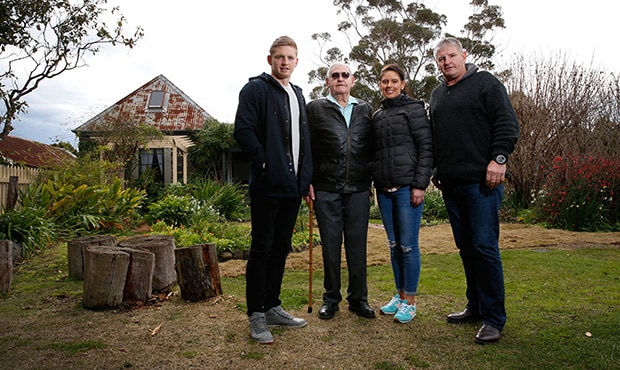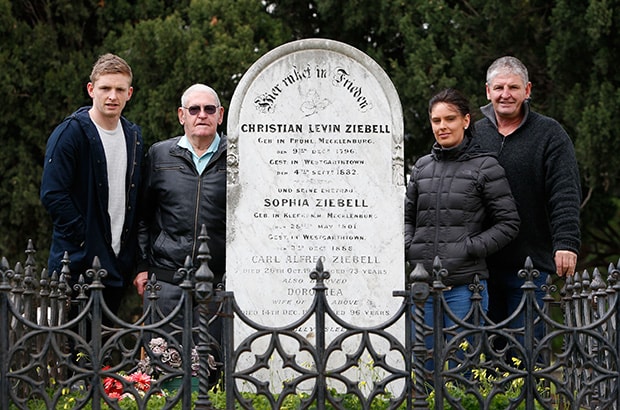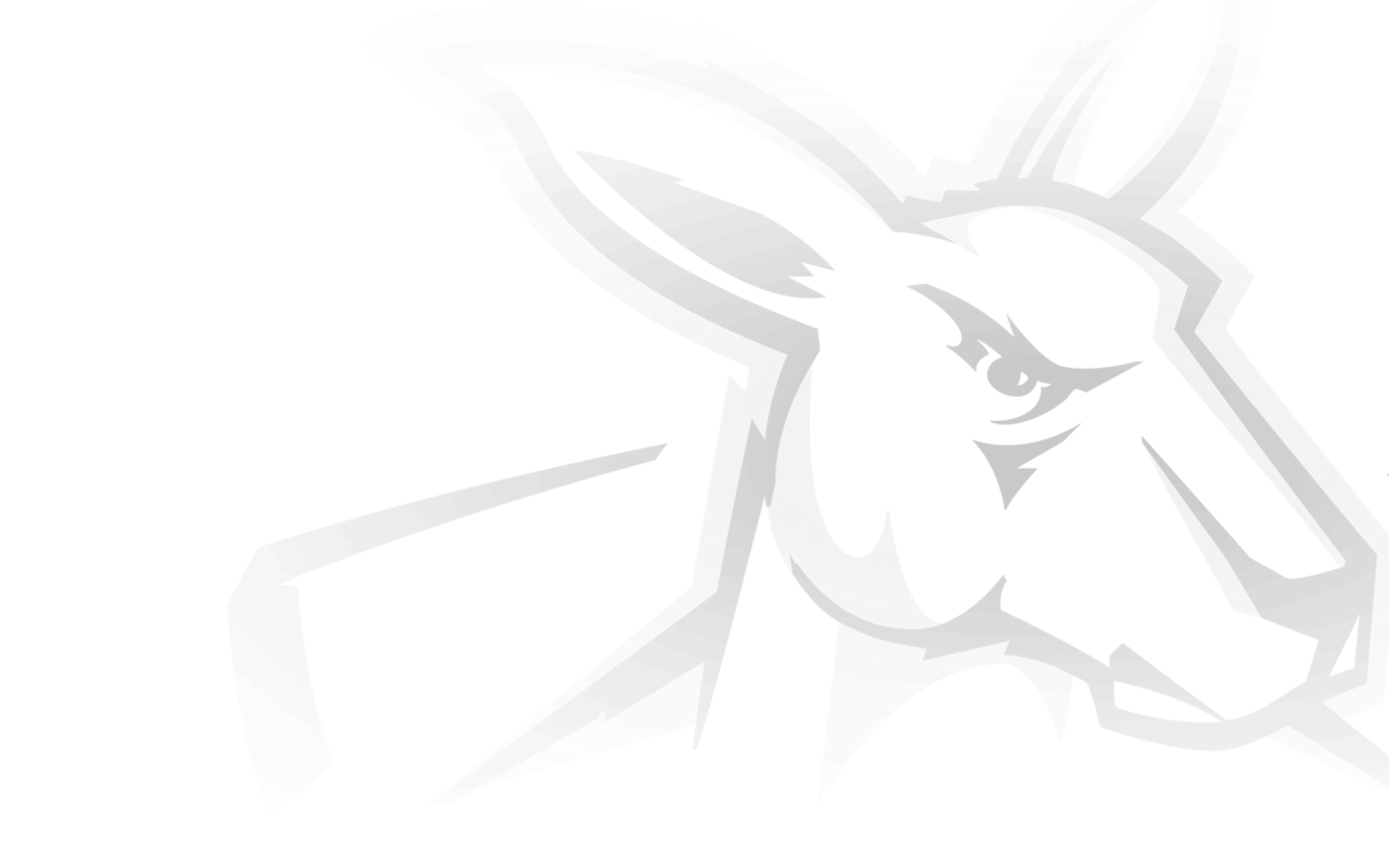Jack Ziebell isn't easily fazed. On or off the field.
But the North Melbourne vice-captain shook his head, raised his eyebrows and broke into a grin.
"This has been a pretty extraordinary experience," Ziebell said.
"I'm quite shocked by it all, actually.
"We only ever had a very rough idea of where our family came from, but now we finally know the truth – and it isn't anything like what we thought it was."
This is the AFL Record's version of Who Do You Think You Are – the SBS program that traces the family history of prominent people.
It's a story that came about by pure chance.
It all started when my neighbor Cedric Young told me he was distantly related to Jack Ziebell, via their German ancestry.
Just to confuse footy commentators, Cedric favoured what he said was the traditional German pronunciation, "Za-bell", rather than "Zeeble".
In fact, he warned that if I were to call a particular descendant and use the "Zeeble" delivery, he would immediately hang up.
Cedric handed me a book titled The House That Christian Built – self-published in 2006 by another distant relation, Janet Hubbard – which told the story of Christian and Sophia Ziebell's migration to Australia with their nine children in 1850, and their important role in establishing the first German settlement in Victoria.
They were 73-year-old Cedric's great-great-grandparents.
I asked Cedric where Jack Ziebell fit in to the equation. He didn't know, but said it was my challenge to find out.
Hubbard's well-researched book didn't provide an immediate answer, as there was no mention of Jack in the lines of the family tree that had been presented. (Nothing unusual there, though – it's a tree with many branches.)
Cedric also mentioned that the Ziebell's 160-year-old house in Thomastown (16kms north of Melbourne) was open to the public every second Sunday.
An internet search quickly found that 'Ziebell's Farmhouse' is actually a landmark on Google Maps.
And little wonder, given the heritage-listed house is the oldest German immigrant building in Victoria. And the Ziebell farm on which it stood was the biggest in the community once known as Westgarthtown (and the more colloquial 'Germantown').
The original Ziebell farm – named 'The Pines' – took up 102 of the settlement's 640-acre expanse, the vast majority of which has been swallowed up by suburbia.
It's quite something to behold the satellite image – and even more so the reality in person, as we'd later discover – of this patch of old village green that sprouts from the residential sprawl.
The farmhouse (and adjoining garden and outbuildings) is just one element of this pleasantly surprising spot.
It backs onto a historical reserve – the centre of the Westgarthtown Pioneer Precinct – that features an old German Lutheran church and cemetery, which were also established in the 1850s and have strong Ziebell links.
But how exactly was Jack Ziebell connected to it all? It warranted some detective work.
The first port of call was Jack's father, Gary.
Gary Ziebell is as Aussie as they come. A onetime 400-game country football star, he's a blacksmith by trade who fashions and sells ornamental Ned Kelly armour in his spare time; and for more than a decade made best-and-fairest trophies for TAC Cup club Murray Bushrangers using the iconic helmet.
When I called Gary, he was in France on a European holiday. (Germany wasn't on the itinerary.)
Unfortunately, Gary wasn't able to solve the mystery. His understanding was that he (and Jack) were connected to Christian Ziebell, but he had no proof of the exact link.
However, Gary had always been keen to find out more about his heritage, and he was able to share some tidbits he'd gleaned over the years – information that would prove crucial to confirming his bloodline.
Gary could go back only as far as his grandfather (Jack's great-grandfather), Otto Ernst Ziebell, who Gary said had taken a young bride late in life and had died in his 60s in the mid-1940s.
Gary's father Ian (Jack's grandfather) was just 16 when Otto died, and knew little about him.
The family didn't have Otto's birth certificate, so they didn't know the name of his father – a key detail in establishing their place in the broader Ziebell clan.
As the story goes, Otto Ziebell's forebears at some point moved to the Euroa area to open a butchery, before settling in the Albury/Wodonga region where Ian, Gary and Jack were later raised.
Gary had been told his family had Danish origins, but suspected this might have been part of a myth perpetuated to avoid persecution during the first and second world wars, when Germany was an Allied enemy.
Alas, there appeared nothing concrete for Gary Ziebell to build his family history upon. In fact, he had almost resigned himself to the idea that he would never know.
"Even Dad's brother's wife tried to chase it up but that came to nothing, so that was the end of it," Gary Ziebell said.
Otto Ernst Ziebell (Jack's great-grandfather) didn't appear in Hubbard's book either. There were Ottos and Ernsts, but no Otto Ernsts.
However, Otto does make an appearance on Trove, the online newspaper archive.
Under the headline, 'Disgraceful Scene', the Wodonga and Toowong Sentinel noted that in a wild Wodonga/Federals grand final in 1906, a "despicable blackguard" in the Federals team directed a "filthy remark" at Wodonga player Otto Ziebell.
Otto was "a rare example of the extremely quiet and good-tempered footballer", but was so incensed that he chased his "cowardly insulter" into the crowd.
The Sentinel observed that "had Ziebell reached him then, no one present envied the Federal player the experience he would have". Spectators "wisely" overpowered Otto to enable his quarry to escape.
But the elusive Otto Ziebell wasn't about to escape our historical clutches.
'The Friends of Westgarthtown' – which manages Ziebell's Farmhouse for the City of Whittlesea – provided the breakthrough.
In-house historian Robert Wuchatsch – a descendant of German settlers himself and the author of a book about Westgarthtown – immediately had a hunch that Otto had descended from Ernst Ziebell, a nephew of Christian Ziebell.
And it didn't take Wuchatsch long to prove it, producing a transcript of Otto Ziebell's marriage certificate, which noted the groom's long-deceased father (Jack's great-great-grandfather) was indeed Ernst Ziebell. (Ernst had been anglicised to 'Ernest'.) (Incidentally, on Otto's wedding day in Albury in April 1929, he was a 51-year-old farmer and his bride, Irene Matthews, was just 20.)
Gary Ziebell's response was worth the effort.
"I'm so rapt that we've finally solved it," he enthused.
THE PATH OF THE ZIEBELL NAME
(David) Johann Friederich David Ziebell (1767-1818)
(Henry) Johann Heinrich Ziebell (1807-?)
Ernst Carl Hendrik Ziebell (1839-1910)
Otto Ernst Ziebell (1877-1946)
Ian Ziebell (1930–)
Gary Ziebell (1962)
Jack Ziebell (1991–)
But there was much more.
Now we could trace Jack Ziebell's ancestry – with a degree of certainty – back to the 1700s.
Hubbard's book once again became the go-to source.
Family patriarch Christian Ziebell returned to Germany on several occasions and in early 1856 he came back with one of his four brothers and probable nephew Ernst, then a 16-year-old butcher.
In 1869 Ernst married Irish woman Rosanna Brady, and their marriage certificate (as presented by Hubbard) reveals further evidence of Jack Ziebell's pedigree.
The document shows that Ernst was born in Helsingor, Denmark, thus proving the Danish connection Gary had been told about.
Ernst's father (Jack's great-great-great grandfather) was named as 'Henry' Ziebell, whom Hubbard and Wuchatsch agree was almost certainly Christian's younger brother Johann Heinrich Ziebell (born in 1807).
With the Ziebells hailing from the little town of Brűel in northern Germany, it is believed that Henry Ziebell might have followed employment north of the border into Denmark.
Henry and Christian's father (Jack's great-great-great-great-grandfather) was David Ziebell.
Born in 1767, David was a Brűel butcher who lost his first wife (a butcher's widow) in 1798 after she gave birth to a stillborn baby.
David Ziebell remarried within three months, to a sailor's daughter, with whom he had five sons.
Henry was just 11 when his father died of "water in the chest" at 51.
It seems Henry's fate is unknown, but much more is known of his presumed son Ernst.
After initially living and working on the Ziebell farm at Westgarthtown, Ernst Ziebell moved to Epping where he plied his trade as a butcher. He and Rosanna had 12 children (including Otto) and Ernst died from heart problems in Albury in 1910, aged 70. (Gary Ziebell recently located his grave in the Albury Pioneer Cemetery.) Rosanna outlived him by six years.
* * * * * * * * * * * *
Jack Ziebell and his sister Elle never even knew of the existence of Ziebell's Farmhouse until three weeks ago.
Their father Gary hadn't been there either, but their grandfather Ian Ziebell, now in his 80s, had visited the place for the one and only time about 20 years ago.
So when the AFL Record arranged for this Ziebell quartet to have a guided tour around the historic site little more than a week ago, it became something of a pilgrimage.
We were greeted by a bitterly cold and windy day on the rocky, gentle rise of the reserve. Rain threatened but mercifully avoided us.
That was one of a few lucky breaks.
On the way there, Jack and Elle had a somewhat eerie experience.
Without realising they were just around the corner from the farmhouse that bears their surname – our meeting place – they stopped in German Lane outside the cemetery.
"I had no idea there was anything else here – I thought we were just going to see the old Ziebell Farmhouse that I'd must been told about," Jack Ziebell told the Record.
"We drove past the cemetery and the first tombstone I saw was Christian Ziebell's. I said to Elle: 'There's a Ziebell tombstone. That's a bit strange.' It's certainly not a common name around Melbourne."
Strange is one way to describe it. Another is freakish.
Here we were at the site of the old property of Jack Ziebell's great-great-great-great-uncle Christian Ziebell, and in a cemetery comprising more than 200 graves boasting names like Schultz, Zimmer, Graff, Nebel and Siebel, some of which included German inscriptions, the first grave Jack just happens to spot is Christian's.
Jack and his family met some distant relations they never knew existed, including my neighbour Cedric and his sister Irma Hatty (whose parents and other family members are buried in the Westgarthtown cemetery).
Irma is secretary and treasurer of the cemetery and church – the oldest operating Lutheran church building in Australia – which she happily opened for us. Jack and Elle got into the spirit by playing an 1850s period organ with apparent competence.
Friends of Westgarthtown president John Fry assumed the role of tour guide, and you'd need an entire Sunday afternoon to absorb it all.
The farmhouse, which has been meticulously restored by the Whittlesea council, is a virtual mini-museum with information boards and artefacts. But it hasn't lost its homely charm.
There was some amusement over the contrasting pronunciations of Ziebell, but both parties politely agreed to disagree.
Jack and his family were fascinated by they saw, heard and learned. They asked questions, smiled often, nodded and shook their heads in semi-awe, and made the odd profound statement.
As Gary Ziebell stood in the doorway of the farmhouse with its 61cm-thick bluestone walls, he declared: "It feels like I'm standing in the doorway of my own house."
Ian Ziebell leant on his walking stick and said: "I've learnt a lot of things about my family today that I never knew, and never thought I would."
Then Gary marvelled: "I'm just blown away by the significance of this place and the role our family played in it."
Jack also seemed astonished.
"It's really cool," he said.
"I'd always thought we were Danish so it's amazing to learn that we're actually German.
"And it's quite extraordinary that all our family history, which I'd never known about, is just 20 minutes up the road.
"There were a few generations that had 10 and 12 kids, so no wonder we lost track – it's a big bloody family!
"I'm just rapt, and I feel extremely fortunate that it's come to our attention."
The man who brought it to our attention was simply pleased to have helped.
"It's a family history we all share," Cedric said.
"Imagine if there were fantastic stories like this in your family and you never found out about it. Now that would be a real shame.
"See what happens when neighbours talk!"
The pilgrimage ended back at the farmhouse where Friends of Westgarthtown secretary Gillian Borrack had arranged cake and coffee, which, along with the warm conversation, fortified our souls against the now biting cold and drizzle.
Like Jack Ziebell the footballer, we had timed our run to perfection.



